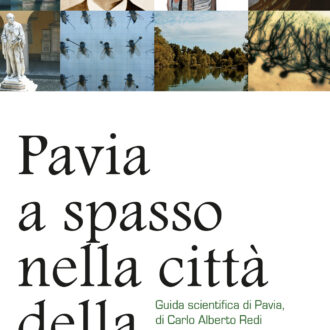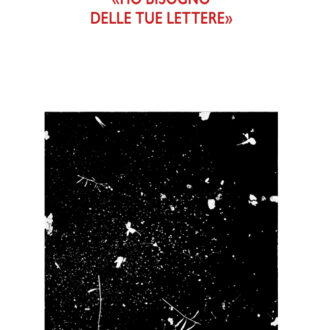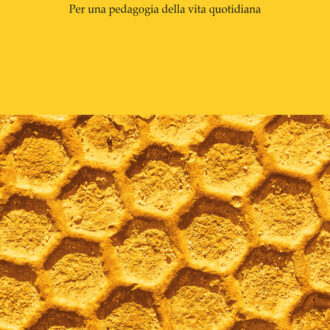In Naissance de l’Odyssée Jean Giono riprende e sviluppa un’affermazione contenuta nel poema omerico, in cui Atena definisce Ulisse «Impudente, fecondo inventore, mai sazio di frodi». Tutte le avventure da lui narrate nell’Odissea ai Feaci sono infatti, a giudizio del romanziere francese, pure e semplici anche se splendide invenzioni che egli elabora, molti anni dopo aver lasciato Troia, per motivare la sua lunga e ingiustificata assenza da Itaca, durante la quale ha accumulato le imprese galanti, e Penelope (secondo le dicerie che circolano) lo ha ripetutamente tradito. Tali invenzioni sono poi riportate da tutt’una serie di aedi (ognuno dei quali le narra con le proprie varianti), sicché quelle avventure giungono alle orecchie di Penelope, che le accoglie come veritiere. Arrivato a Itaca, Ulisse constata la veridicità di quelle dicerie, ma non deve affrontare l’amante di Penelope in quanto quest’ultimo viene improvvisamente travolto da una frana. L’eroe non tarda allora a cercare di riconciliarsi con Penelope, che si affretta di acconsentire a quella riconciliazione. Essi condurranno, d’ora innanzi, una vita coniugale normale, anche se un po’ piatta, di cui Ulisse si risarcirà con i voli dell’immaginazione. Va in primo luogo detto che Giono, in quel racconto, prende nettamente posizione (ovviamente con gli strumenti critici disponibili ai suoi tempi) circa la ‘questione omerica’, in quanto ci dice che le ‘meravigliose’ avventure vissute da Ulisse non sono l’opera di un unico narratore (nelle fattispecie Omero), ma anche di parecchi aedi, ognuno dei quali ha raccontato quelle avventure in modo abbastanza diverso. Per giunta va sottolineato (per riprendere un famoso saggio di M. Bachtin) che due dimensioni si alternano in Naissance de l’Odyssée: quella epica (nei racconti fantasiosi fatti da Ulisse) e quella romanzesca (nella narrazione delle ultimissime fasi del suo viaggio di ritorno a Itaca e delle implicazioni di quel ritorno), Centrale nel romanzo è quindi il discorso condotto intorno alle menzogne di Ulisse, che tuttavia Giono (contrariamente a quanto accade in molti autori dall’antichità classica a oggi) giudica del tutto positivamente, nella misura in cui rivelano una notevole vena immaginifica, nettamente più suggestiva dei racconti di tipo realistico. Giono vede insomma in Ulisse la figura di un certo tipo di artista, di poeta.
Parole chiave: Giono, epopea, romanzo, Omero, Odissea.
In Naissance de l’Odyssée Jean Giono takes up and develops a statement contained in the Homeric poem, in which Athena defines Ulysses as «Impudent, fruitful inventor, never satisfied with frauds». All the adventures he narrates in the Odyssey to the Phaeacians are in fact, in the opinion of the French novelist, pure and simple even if splendid inventions which he elaborates, many years after leaving Troy, to motivate his long and unjustified absence from Ithaca, during which he has accumulated gallant exploits, and Penelope (according to rumors) has repeatedly betrayed him. These inventions are then reported by a whole series of bards (each of whom narrates them with their own variations), so that those adventures reach the ears of Penelope, who accepts them as truthful. Arriving in Ithaca, Ulysses confirms the truthfulness of those rumors, but he does not have to face Penelope’s lover as the latter is suddenly overwhelmed by a landslide. The hero and Penelope immediately reconcile. From now on, they will lead a normal, if somewhat flat, married life, for which Ulysses will compensate with flights of imagination. First of all, it must be said that Giono, in that story, clearly takes a stance (obviously with the critical tools available in his time) regarding the ‘Homeric question’, as he tells us that the ‘wonderful’ adventures experienced by Ulysses are not the work of a single narrator (in this case Homer), but of several bards, each of whom recounted those adventures in a different way. Furthermore, it should be underlined (to quote a famous essay by M. Bakhtin) that two dimensions alternate in Naissance de l’Odyssée: the epic one (in the imaginative tales told by Ulysses) and the novelistic one (in the narration of the very last phases of his return to Ithaca and the implications of that return). Central to the novel is therefore the discussion conducted around the lies of Ulysses, which Giono (contrary to what happens in many authors from classical antiquity to today) judges entirely positively, to the extent in which they reveal a notable imaginative streak, clearly more suggestive than realistic stories. In short, Giono sees in Ulysses the figure of a certain type of artist, of poet.
Keywords: Giono, epic, novel, Homer, Odyssey.












Recensioni
Ancora non ci sono recensioni.